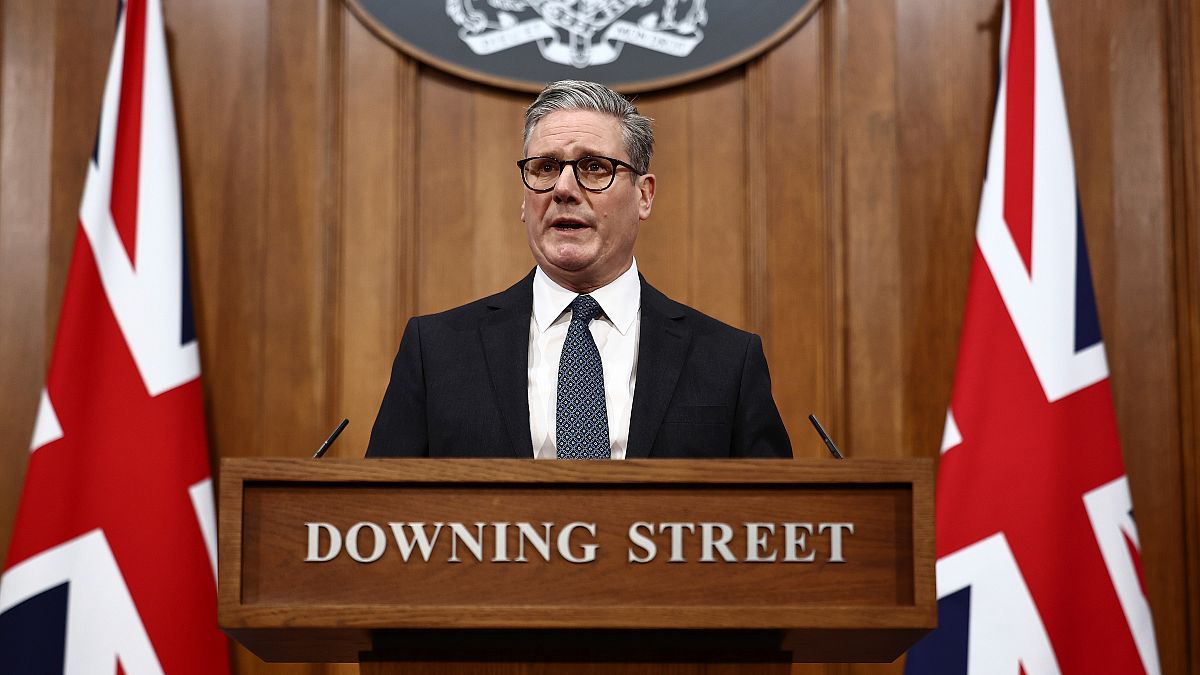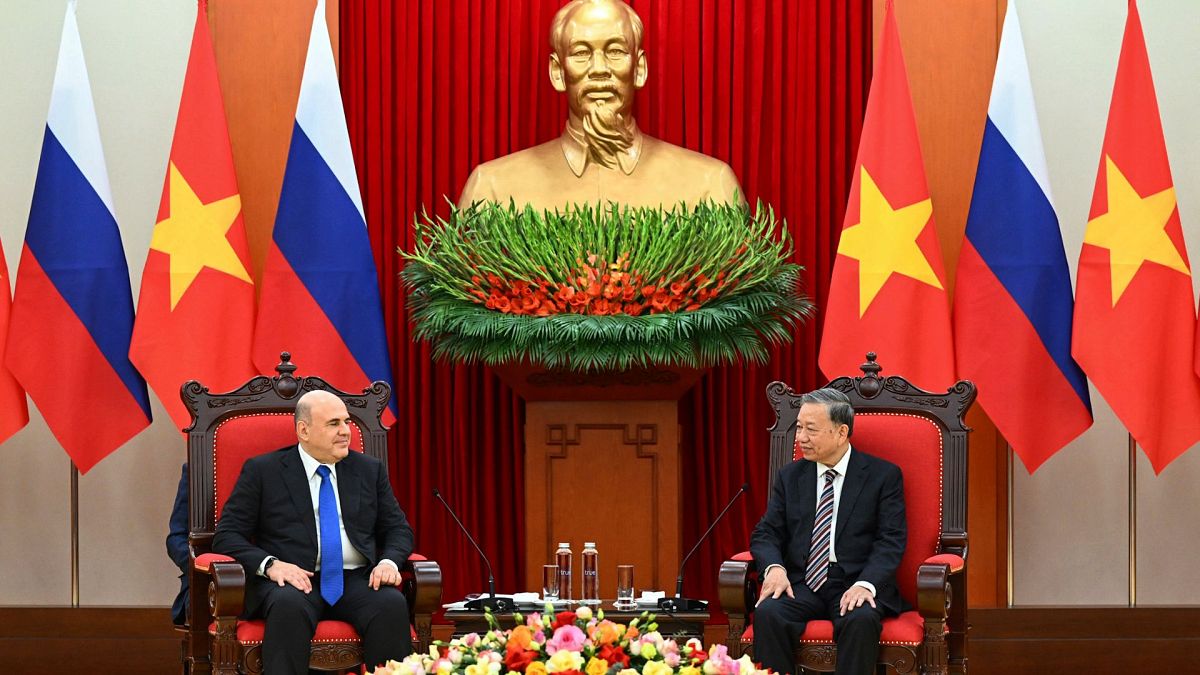Trump is complicating Biden’s final push in the Middle East
Some regional leaders appear inclined to unveil key initiatives under the next president, giving him the glory.
MANAMA, Bahrain — Biden administration officials are racing to score some wins in the Middle East in their remaining six weeks in office. President-elect Donald Trump is making that harder in some cases, but in others, his actions are actually helping.
The outgoing administration is pushing to strike a cease-fire deal in Gaza; maintain a shaky truce in Lebanon; ink some version of a U.S.-Saudi-Israel compact; and tamp down a spiraling conflict in Syria. Aides to President Joe Biden say they want to leave the incoming Trump team a strong hand in the Middle East, but it’s clear there’s also a desire to burnish Biden’s tarnished legacy in the region.
Trump already is paying close attention to the Middle East. He’s met with some Arab leaders, called for an end to wars in the region and nominated several people for Middle East roles. At least one of his future envoys has reportedly already traveled to the region for meetings.
Trump’s flurry of activity is affecting how Middle Eastern governments deal with Biden and his aides, with mixed results for their last-minute goals, U.S. officials said. The president-elect’s shadow loomed over two major foreign policy and security gatherings in the Middle East this weekend — the Doha Forum in Qatar and the IISS Manama Dialogue in Bahrain — where Biden officials connected with counterparts and sought cooperation in their final efforts.
A U.S. official familiar with the Middle East file, one of two U.S. officials interviewed for this story, said Trump and his aides’ public and private exhortations that the wars involving Israel must come to an end have had some positive effects, especially in Lebanon.
The U.S. official credited Trump’s meeting with Ron Dermer, a senior aide to Israeli Prime Minister Benjamin Netanyahu, with helping push the Israelis to agree to a truce last month with Hezbollah militants in Lebanon. Both officials were granted anonymity to discuss sensitive diplomatic and security information. The Biden administration’s overall sense is that the truce is holding up.
There also are signs that Hamas and Israel are closer to a cease-fire in the Gaza Strip, where fighting has killed tens of thousands since the Oct. 7, 2023, Hamas attack. Such a deal, on which Biden aides are laser-focused, could involve the release of some Israeli hostages held by the militant group.
Trump has recently threatened Hamas in Gaza, warning on social media that the militants will have “hell to pay” if they don’t release Israeli hostages. The U.S. official said the impact of that statement is unclear.
Even if a Gaza cease-fire isn’t reached, Israel has largely routed Hamas and the war there appears to be shifting into a lower-intensity phase — regardless of what the outgoing and incoming administrations do. There are reports that Israel is building infrastructure for an ongoing military presence in Gaza, which has been a sticking point in cease-fire negotiations.
Spokespeople for Trump’s transition team did not immediately respond to requests for comment.
Yet some Middle Eastern leaders are considering waiting on certain initiatives until Trump is in office and letting him take credit — a situation that Biden administration officials say they accept as a reality that nonetheless doesn’t help their legacy.
The Palestinian Authority, for instance, has adopted modest reforms under Biden. But it has held off on agreeing to change what Israelis deride as its “pay for slay” system. That program, which Palestinians refer to as “martyr payments” gives financial support to the relatives of Palestinians who are wounded, killed or imprisoned while carrying out violence against Israelis.
The PA has told Biden administration officials that it is more likely to announce changes to the controversial system under the next administration to score points with Trump, the U.S. official said.
One person affiliated with the PA who was reached Saturday said he had no information on the issue, while another did not immediately respond to a request for comment.
The Biden administration is also trying to rescue — at least in part — a grand bargain with Saudi Arabia to establish diplomatic relations with Israel in exchange for security guarantees from Washington, said a second U.S. official, who is familiar with discussions with Middle Eastern governments. That effort had been dealt a major setback by the Gaza war.
For now, Saudi Arabia continues to insist that such a deal hinges on Israel committing to a path toward a Palestinian state — a nonstarter for Netanyahu.
At the Manama meeting, Saudi Arabia’s Prince Turki Al-Faisal, a former Saudi ambassador in Washington, slammed Israel’s conduct in Gaza, even using the term “genocide.” He addressed some of his criticism directly to Trump.
“Respectfully, Mr. President, no more brimstone and hellfire is required to bring hostages back and bring peace to the conflict,” the Saudi said, an apparent reference to Trump and his social media post trashing Hamas. “The Palestinian people in Gaza and the West Bank are already suffering from the hell that Israel is raining on them.”
Al-Faisal may be signaling that the kingdom is far from ready to strike a deal. But it’s also possible the Saudis are calculating that it’s better to wait until Trump is in office to make a grand deal, and that staking out a hard line now could give them more leverage down the line.
Asked for formal comment on the Biden administration’s final Middle East push, Sean Savett, a spokesperson for the National Security Council, said Biden “continues to support efforts to build the conditions for a lasting peace in the region, including through support for a two-state solution” for Israelis and Palestinians.
In Manama, Biden administration officials helped unveil one new achievement on Saturday: plans to bring the United Kingdom into an existing U.S-Bahrain security and economic agreement. It was not immediately clear how long the expansion plans were in the works.
The original pact, launched in 2023, has received little broad attention in Washington. But it is a point of pride for the Biden team, and the Bahraini government considers it a crucial piece of its security architecture against threats such as Iran.
The agreement is a “cornerstone for increasing cooperation among a broader grouping of countries in and around the region,” said Barbara Leaf, the U.S. assistant secretary of State who oversees the Middle East division, at a ceremony announcing the U.K. invitation.
The trajectory of Syria’s revived internal war is a major unknown as Biden aides prepare for a hand-off to Trump. Rebels have recently taken over at least two major Syrian cities, threatening the fragile Iranian- and Russian-backed regime of Bashar Al-Assad.
Assad’s fate was a hot topic on the sidelines of the gathering in Manama. Many at the event despise the brutal strongman, but they also do not want to see Syria collapse into anarchy given the rebels’ internal rivalries.
The Biden administration has called for de-escalation in fighting and political talks to resolve the Syria crisis.
The second U.S. official said the goal is to give Trump the best possible starting position to deal with a likely long-running challenge in Syria. But at this stage, there’s little the United States can do beyond manage the situation with what limited influence it has.
Trump himself has long been wary of any U.S. role in Syria’s complex crisis. On Saturday, he made clear on social media, writing of the conflict: “THE UNITED STATES SHOULD HAVE NOTHING TO DO WITH IT. THIS IS NOT OUR FIGHT. LET IT PLAY OUT. DO NOT GET INVOLVED!”
What's Your Reaction?




















































